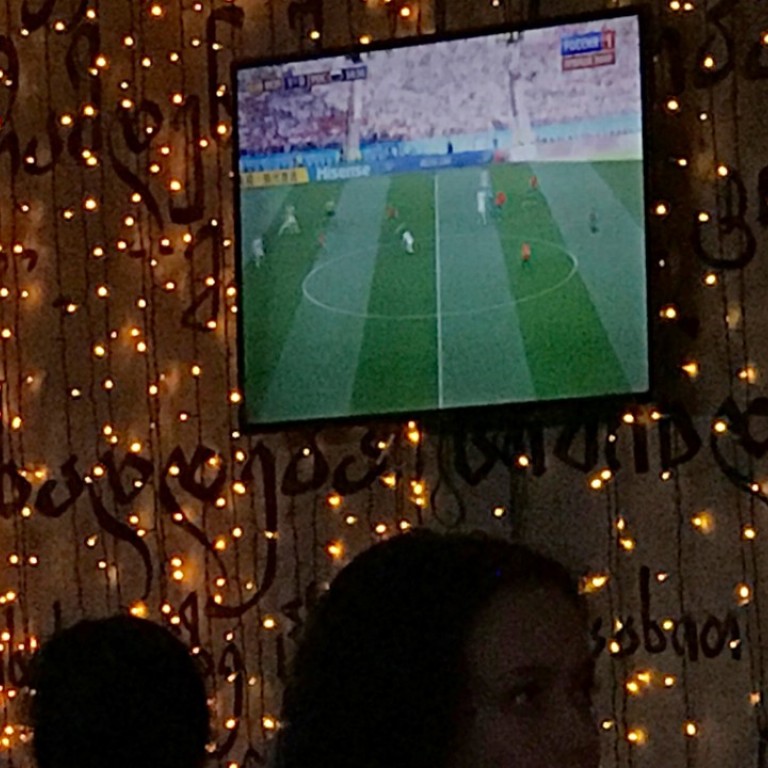
Fifa World Cup unites Hong Kong refugees as charity screens games in Chungking Mansions following stoppage-time donation
Christian Action’s Refugee Centre offers the chance to view screenings at their Kowloon base
Uruguay supporters are outnumbered by 10 to one. Every single incident has been met with raucous cheers, sofa-slapping and plenty of ribbing the night’s South Americans, though not even the goal beats the howls for France keeper Hugo Lloris swallowing a bug.
We’re on the 17th floor of Chungking Mansions at Christian Action’s Refugee Centre. The local NGO has opened the venue for the World Cup to screen games from Russia, after a generous last-minute donation allowed them to buy a Now TV subscription to cover the competition. It’s not the first time they have relied on a donation to save the day, Jeffrey Andrews, a caseworker for Christian Action and the first ethnic minority social worker in the city, says. One woman bankrolled the football team for three years after donating HK$50,000.
I’m told that the crowd tonight is made up of clients of the centre and their friends by the couple of staff who are also watching.
Andrews is also, I’m told by his colleague, a bit of a celebrity, following an interview with 100 last year. He joined Christian Action almost nine years ago and started their football team soon after.
The main thing you notice in the room after the fact that it is full, while always finding space for another latecomer to the game, is that the team’s trophy cabinet is just as packed. Andrews tells me that they have won 19 titles in their brief existence, an achievement that puts him past Pep Guardiola and Jose Mourinho in the managerial stakes.
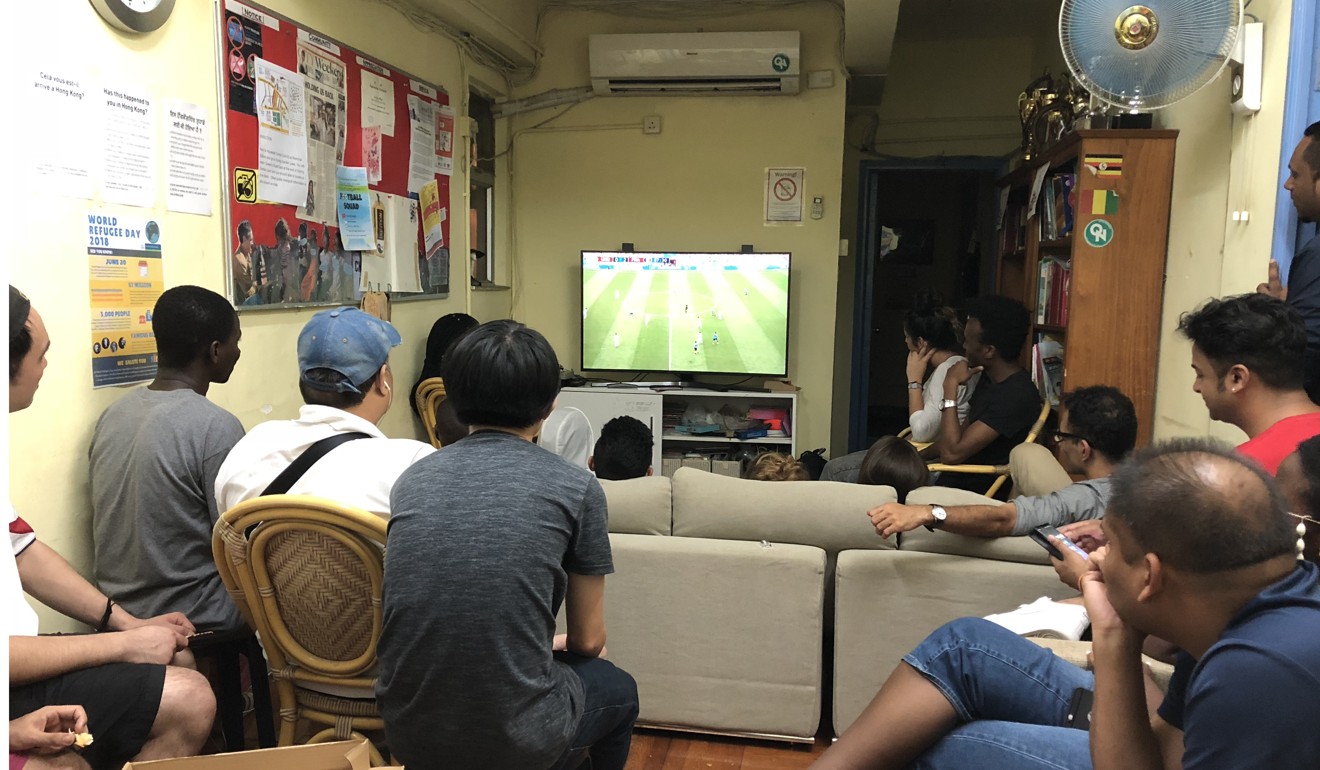
The football team has been a welcome distraction since he joined six or so years ago, although he’s going to have to juggle games with work now he has been accepted for a work permit, a rare occurrence for the city’s refugee population, and already has a job lined up as he plays another waiting game for the paperwork.
Gabriel is happy to tell me that but he’s happier to talk about football. He expected a team from his native Africa to win, he said, and in this game he wants France to beat Uruguay. The French are half-way to that when we speak at half-time in the centre’s kitchen, part of three apartments spread over two floors.
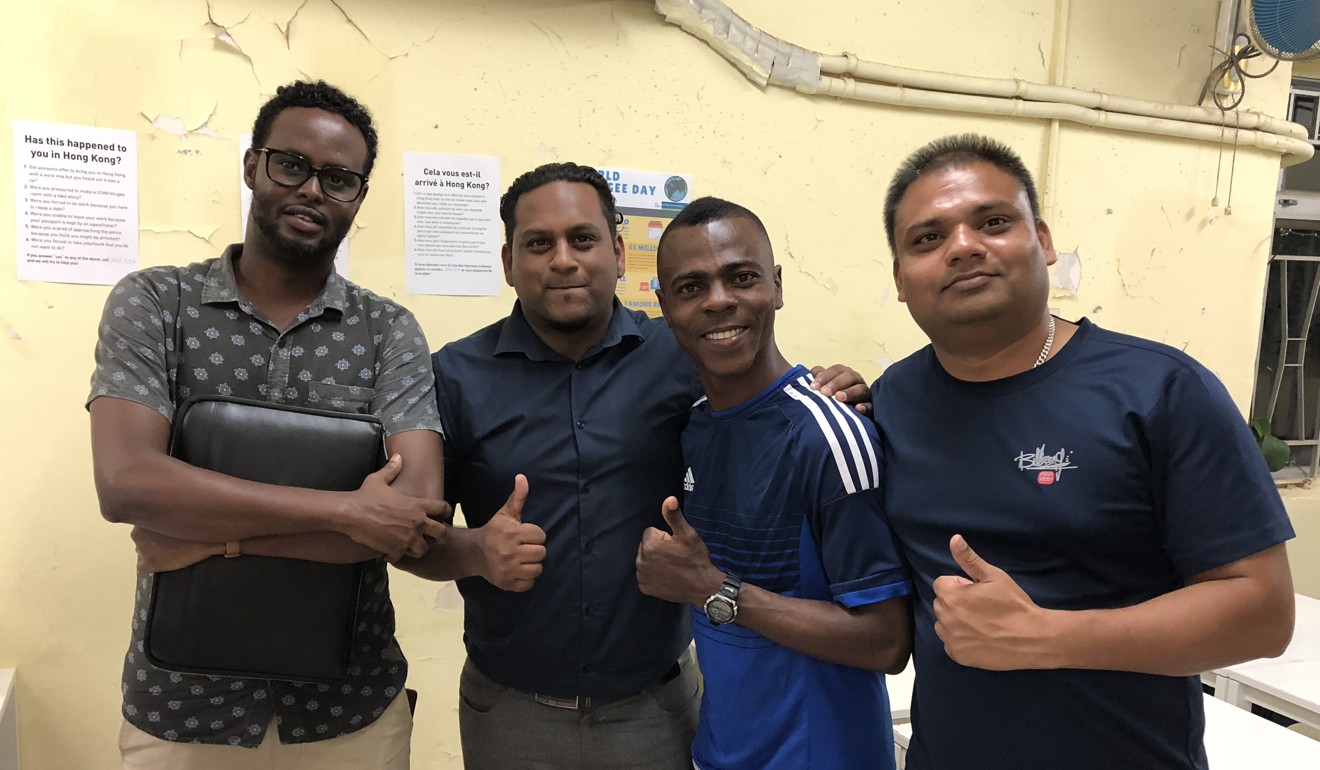
In the meantime, Andrews fills me in on things that have made him even prouder than the football team and seeing the growth of the centre in Chungking Mansions and how full of life it is in the daytime.
He tells me of former clients, one of whom became a standup comic in Hong Kong, despite not knowing a word of English when he arrived at the centre. He met up with another former client in the US, where they were now working for Microsoft and picked Andrews up from the airport in a swanky car. He’s since moved to KPMG. Others have moved on too, one former goalkeeper went to Canada and he was sent off with a standing ovation and a cake from a local Hong Kong Chinese team in his final game.
For all the success, it is not always a happy ending. Some of his clients have not even had their cases opened in five years, but worse still was the woman who fled Pakistan for religious persecution and after finally being granted right to remain died within a year. Her situation meant that Andrews had to crowd-fund the costs of her funeral.
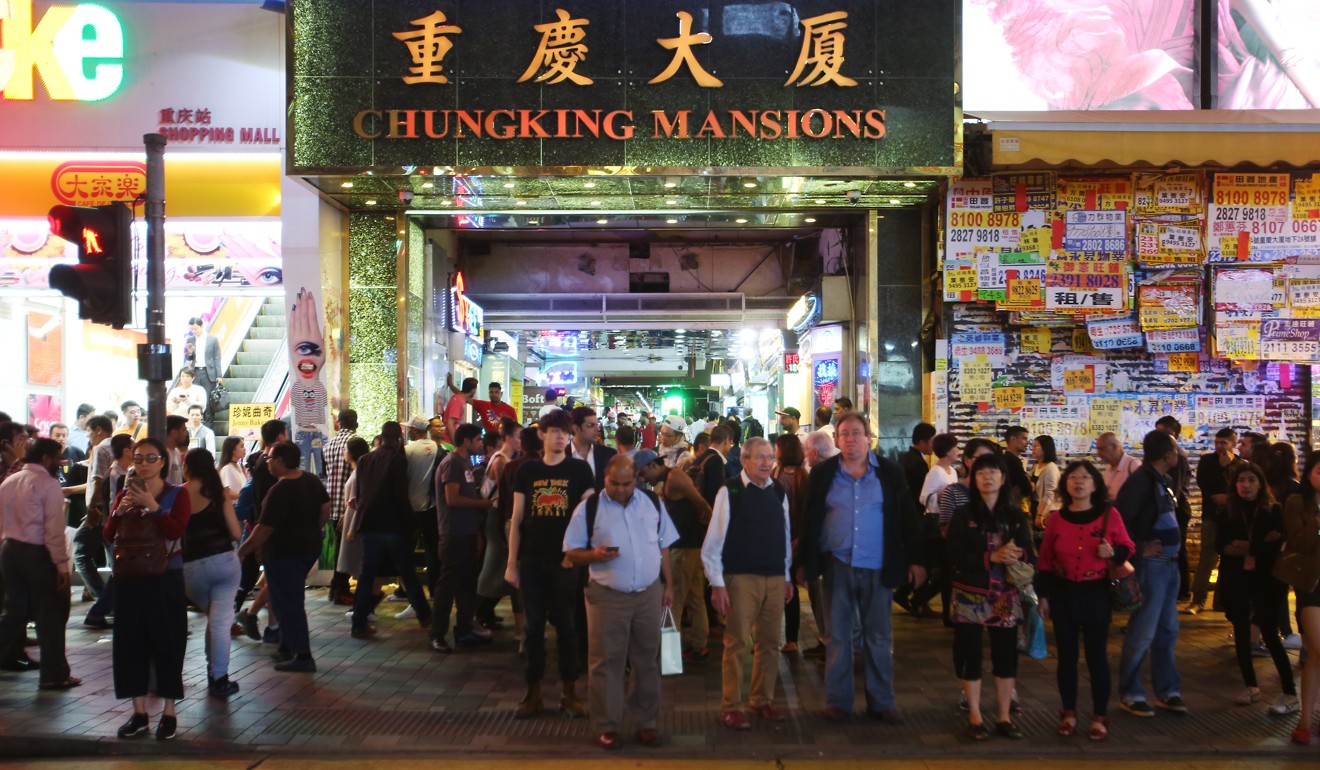
The game finishes just after we are told that the second half has started but both Darius and Sharmake are eager to talk, part of their own mission to change the perception of refugees. Both talk as eloquently and passionately as Andrews as they list the change in attitudes they have seen in Hong Kong over recent years and the interest from younger generations. Football has been a big part of this, the three agree, but not the only part.
Darius tells a tale of how he met a child on a school visit who was initially scared of him. The next time he saw them they ran up to him on the street with their parents in tow. Darius recently did a TED Talk, a rarity he tells me because a lot of refugees are uncomfortable speaking in public and drawing attention to themselves – most attendees tonight were unwilling to sign a release.
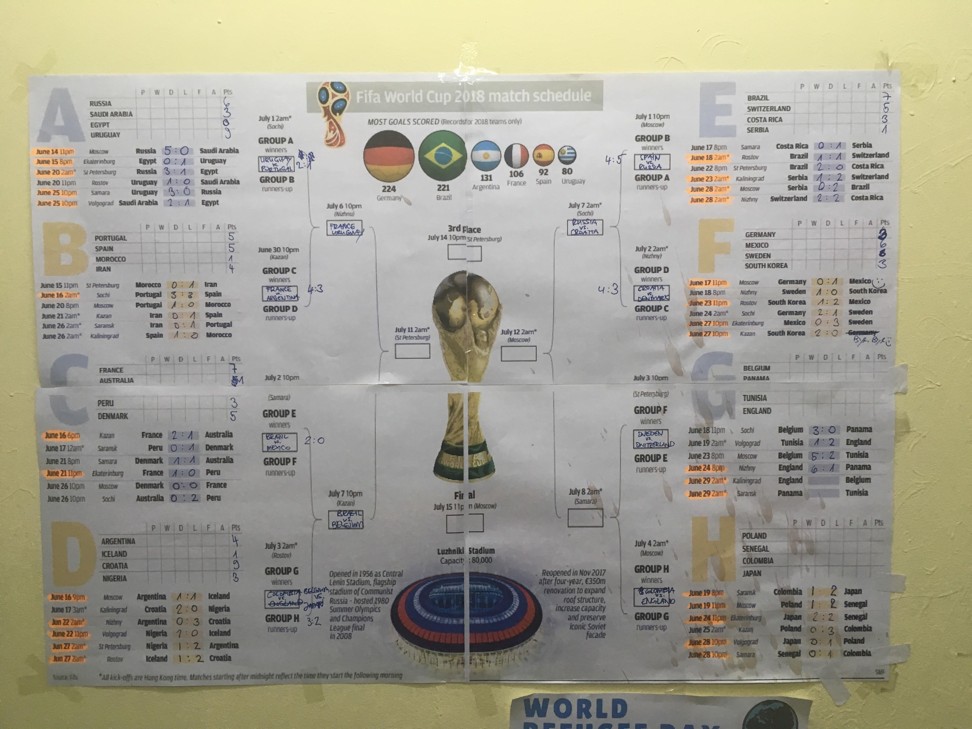
Andrews points out that Gabriel was unusually talkative in our earlier chat, something Sharmake puts down to football. People are bored of talking about their situation, he tells me, as it’s all they ever have to talk about. The football is a welcome talking point, as much as it as a relief. Coming to chill out in the centre and watch games is a welcome break from doing nothing – pretty much all you are allowed to do as a refugee by Hong Kong law, the three say. Darius points out the queue for the Xbox come 6pm. Sharmake suggests that watching the football actually keeps people out of trouble, Darius and Andrews agree.
There’s a lot more laughing and joking before the final whistle. The family origins of France’s Steven N’Zonzi being of particular interest from a room full of people where many of whom come from Africa.
Many of them are staying for the late game, which is an option after the donation allowed them to buy a subscription a day before the tournament. That is enough to cover the World Cup, Andrews says, but they’ll need to find the cash to pay for the remaining 11 months of the year-long contract and the club football that comes with it. But that’s a problem for another day.
“Brazil. Belgium. 2am,” says Andrews on the final whistle. “Xbox until then.”

